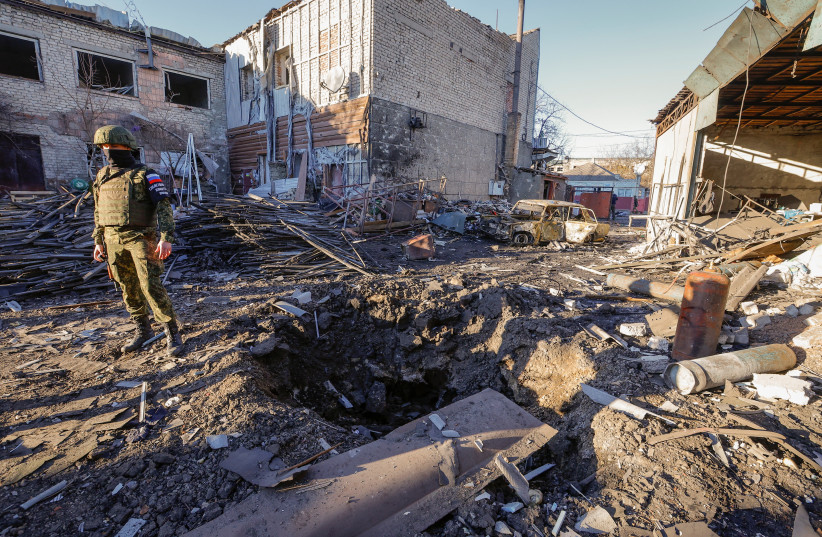Russian leaders should be put on trial for the invasion of Ukraine even if they cannot be arrested and brought to court in person, Kyiv's top prosecutor said on Thursday.
Ukrainian Prosecutor General Andriy Kostin, speaking to Reuters during a stopover in The Hague where the International Criminal Court is based, said that a planned tribunal for the crime of aggression should hold so-called trials in absentia.
Kostin spoke after meeting with the chief ICC prosecutor, which last week issued an arrest warrant for Russian President Vladimir Putin, accusing him and his children's commissioner of the war crime of deporting children from Ukraine to Russia.
Swift work by prosecutors and cooperation with the ICC "was the reason for such a fast response to one of the most severe war crimes of this war, forced deportation and abduction" of children, Kostin said.

While the ICC can prosecute war crimes, crimes against humanity and genocide in Ukraine, it cannot prosecute the crime of aggression due to legal constraints.
International support is growing for the creation of a special tribunal that would prosecute Russian leaders for the 13-month-old invasion itself, considered by Ukraine and Western leaders to be a crime of aggression.
The special tribunal should go after "the highest political and military leadership, including Putin, for the crime of aggression," Kostin said.
"I believe that it could be (held) in absentia, because it's important to deliver a matter of justice for international crimes even if perpetrators are not in the dock."
International courts very rarely hold trials in absentia and the ICC's rules state specifically that an accused suspect shall be present during trial.
The only recent example of an international trial in absentia was in the case of Lebanon, for which a U.N.-backed tribunal convicted three men for the 2005 assassination of Lebanese politician Rafik Hariri.
A Dutch court last year convicted three men - two Russians and a Ukrainian - in the 2014 downing of Malaysian Airlines Flight MH17 over eastern Ukraine. None of the suspects was present in court.
GENOCIDE CASE
In a gesture of defiance, Russia's top investigative body said on Monday it had opened a criminal case against the ICC prosecutor and judges who issued an arrest warrant for Putin, which Moscow has called outrageous and legally void.
Russia has publicly said it has brought thousands of Ukrainian children to Russia in what it presents as a humanitarian campaign to protect orphans and abandoned children in the conflict zone.
Kostin also said that his office is collecting evidence of the most difficult crime to prove, genocide, for which it must be shown that there was an intent to eliminate a specific group in whole or in part.
He said the crimes documented so far, including murders, torture, sexual violence, shelling of civilian targets and illegal detentions, were at least "equal to the crimes against humanity" and have been documented across the territories occupied by Russia.
"We carefully collected evidence which we believe will build the case of genocide," he said. Kostin said "it will take some time" before that case is ready to go to court, adding "but our work will go ahead."
